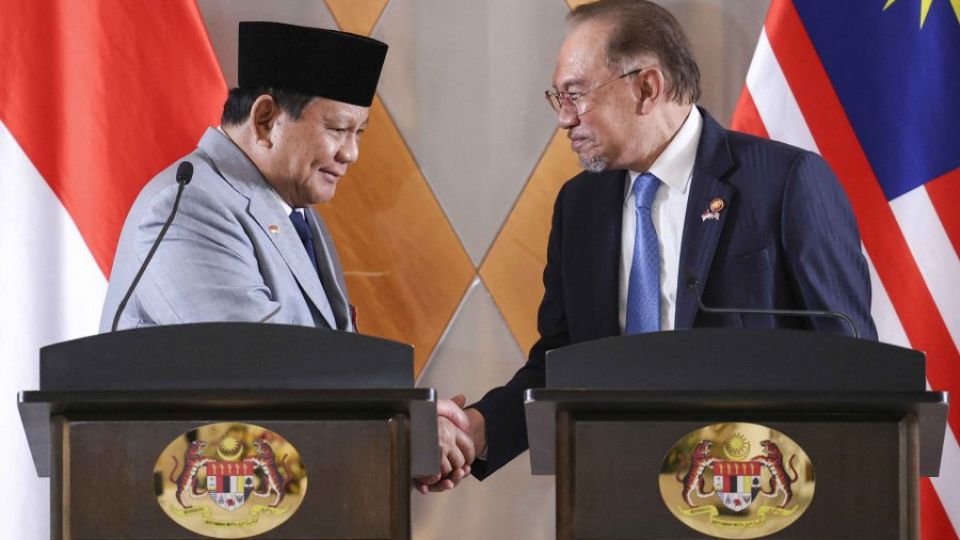Indonesian migrant killed: tension between Jakarta and Kuala Lumpur
The clash was caused by the death of 50-year-old Basri, originally from Riau, and the injury of four other people. Their boat allegedly did not stop in front of the warnings of the Malaysian Mmea, who opened fire. Analysts believe that Subianto's nationalist policy cannot allow the incident to go unnoticed, while safeguarding relations.
Kuala Lumpur (AsiaNews) - An incident on the seas in which a migrant worker was killed is at the root of tension between Indonesia and Malaysia, at a crucial stage for the two Southeast Asian nations with Kuala Lumpur assuming the annual presidency of the Asean bloc in early 2025. In response, the Jakarta government has assured that the mistreatment, abuse or violent death of its citizens abroad will no longer go unpunished, while the leadership of the two countries promise thorough investigations to shed full light on the matter. In the background remain the profound critical issues concerning territories and maritime borders in the Asia-Pacific region, starting with the South China Sea, the scene of a bitter conflict between Beijing and other countries in the area.
Malaysia is investigating the incident involving its coast guard that caused the death - by gunfire - of an Indonesian migrant and the wounding of four others, raising a (rare) diplomatic clash between the two South-East Asian nations. On 30 January, the Kuala Lumpur embassy in Jakarta was pelted with eggs by members of pro-human rights groups and workers' unions for the killing. In response, the Indonesian government sent a diplomatic note of protest to its counterpart and President Prabowo Subianto called for a thorough investigation to shed light on the affair.
On 24 January, a 50-year-old man named Basri, originally from Riau Province, was killed by Malaysian Maritime Enforcement Agency (Mmea) officers who shot at a boat ‘guilty’ of trespassing in the waters of Tanjung Rhu, Selangor State. Two other members of the boat, who had sustained bullet wounds, were discharged from the Selangor hospital and are now in the custody of the Malaysian police, while the last two wounded as of 3 February are still in hospital. On 29 January, five days after the 3am accident, Basri's body was brought back to Riau for burial. According to initial reconstructions, the Kuala Lumpur naval officers issued a warning through a loudspeaker, but the vessel drove away, ignoring the calls. Hence the response of the Mmea officers, who fired at the fleeing vehicle with the five migrants on board, killing one of them.
Speaking to local media, analyst Bridget Welsh said that ‘Malaysia can no longer expect Indonesia to remain silent in the face of the mistreatment of migrant workers’ even in light of President Prabowo Subianto's claims and promises. An associate researcher at the University of Nottingham in Malaysia, Welsh said Prabowo is building his reputation on ‘nationalism’ and defending his country. The issue concerns the problem of ‘Malaysian police impunity and the systematic mistreatment of immigrants, both practices that need to change’. ‘The issue,’ he warns, ‘could take hold if not handled well. According to the Indonesians, the police shot an unarmed man in cold blood. This is a cause for concern'.
Kuala Lumpur Interior Minister Saifuddin Nasution Ismail defended the Mmea's actions, saying that the crew had used loudspeakers to identify themselves and had issued warnings before the shooting. However, The Jakarta Globe responded by quoting the comment of politician Tubagus Hasanuddin, who expressed strong doubts about the Malaysian authorities' explanation. ‘It seems strange,’ says the politician, ‘that Indonesian citizens deliberately collided with the Mmea boat, also because illegal immigrants usually flee when confronted by the authorities.
James Chin, an analyst and political scientist at the University of Tasmania, points out that the incident may rekindle long-standing grievances among Indonesians about Kuala Lumpur's treatment of their fellow citizens: ‘The protests in Jakarta, including the egg-throwing at the embassy reported on 30 January, reflect deep-seated frustrations. This is a sensitive issue,' the expert continues, ’because there have been many cases of mistreatment in the past, particularly of Indonesian domestic workers in Malaysia. ‘Indonesians are unhappy about how Malaysians generally look down on them, even though their economy is growing rapidly. However, despite mounting pressure from Jakarta, Chin said he expects diplomatic ties to remain intact as both nations understand the economic, cultural and geopolitical importance of bilateral relations.







.png)










